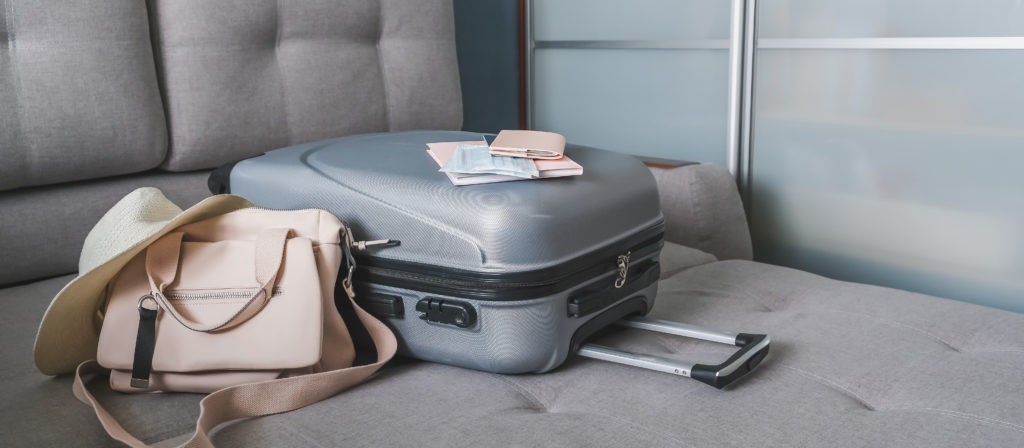A new year is the perfect time to start something new. And if you’re looking for a fresh opportunity that builds on your current clinical experience, travel nursing might offer the ideal path for you. Or maybe you’re already on that path – but looking to do things a little differently.
If travel nursing is in your future, here are a few tips on creating your 2023 roadmap.
Let’s Start with the Basics. Should You Explore Travel Nursing?
If you’re still vacillating between interest and uncertainty, you might have some concerns about travel nursing. Maybe you worry you’ll be lonely or ignored by facility staff. Perhaps the inconsistency of assignments bothers you, or you think the licensing and applications will be too complicated.
Here’s the reality: travel nursing is pretty great. It’s exciting, pays well, and you get to see some of the most beautiful parts of the country. You’ll also enjoy a flexible schedule. You might complete an assignment providing hands-on trauma care for several months, then take a few weeks off to relax and recharge. You’ll expand your skill set, explore new clinical modalities, and build amazing connections.
As for assignment consistency and logistics – much of that comes down to the agency you work with. Choose wisely and you can count on administrative and professional support, as well as rich opportunities. Choose poorly and well, not so much.
Let’s look at a few guidelines that can make or break your travel nurse life.
Staffing Agencies: The Good, the Bad and the Incompetent
It was a sad story – but a common one.
As an in-demand ICU travel nurse, Ava was offered astounding pay rates during the pandemic. For her third contract, she decided to work with a for-profit hospital offering thousands of dollars a week. But just 10 days into her 13-week contract, her unit manager and recruiter informed her that her rate would be cut in half. When she protested, the recruiter pointed out that the contract terms specifically said the hospital reserved the right to change rates or cancel the contract at any time.

That’s standard for almost every travel nurse contract. By the same token, nurses can give notice with no financial or legal consequence. In other words, a travel contract is often just an agreement – but not a legally binding one.
Compensation isn’t the only possible disappointment. Gilberto, an experienced critical care nurse, signed up with a large staffing agency because he felt their size offered security. But he discovered their scheduling practices were complex, their communication poor, and their support non-existent. They did not prepare him for the facility he was assigned to, so that the staff were annoyed at his lack of awareness about the patient population’s clinical needs. When he tried to contact the agency, his recruiter ignored him.
These are increasingly common scenarios in today’s volatile nursing market. Shortages means hospitals and staffing agencies try to attract talent with high rates and reassuring promises, but then deliver something very different. One agency made the news after nurses complained of subpar housing with used needles and excrement on the premises, and filthy rooms with broken locks and stray cats in their motel beds.
Finding a Good Agency: Play Detective and Ask Questions!
As you can tell, picking the right staffing agency is critical. In addition to experienced recruiters and good hospital connections, here are a few things to look for.
To start, ask if the agency has clinical leadership. Leaders who work on the floor as physicians and nurses are going to understand your challenges and advocate effectively for you. Another factor: consider smaller agencies. Larger agencies may view you as a drop in a very large pool, with a dozen more clinicians to take your place if you leave. Smaller agencies are more incentivized to keep you happy, so they tend to ask for your personal preferences and work to ensure an assignment fits your professional goals.
Also ask the agency about its day-to-day practices. How is scheduling done? How long are the assignments? Who arranges travel and lodging?
Next, have your recruiter walk you through a theoretical assignment. What information will they provide about the facility size, patient population, and surrounding community? What type of training or orientation will you receive? What is the nurse-to-patient ratio? Are hours guaranteed? Who can you call to request help or report issues? Are there local stores where you can grab essentials and groceries – and what should you pack? Knowledge is power, and a good agency will want you to be as informed as possible.
Take Control: Set Yourself Up for Travel Nursing Success
A good staffing agency will help with logistics, but your success as a travel nurse also depends on you. Organize your paperwork – certifications, immunization records, references, and CV – so every document is current and available. If you’re not used to being away from home for long periods, remember to set up mail collection arrangements, make automatic online bill payments, and take other steps to make the transitions smoother.

Once you’re on assignment, try to befriend both the facility staff and other travelers. This is a perfect opportunity to enrich your network with clinicians of different specialties. Most of them will move on to other facilities, giving you connections at clinics and hospitals in every part of the country. You may also find chances to learn or practice new skills and care delivery methods.
Finally, remember to explore in your off hours. Take a break and visit the local attractions, hiking trails, historic monuments, or community festivals. Travel nursing offers an incredible opportunity to see the country – take advantage of it!
Expanding Your Career Horizons
Here’s one last benefit to travel nursing: the freedom to control the longevity or brevity of your travel nursing career. You can enjoy the adventure of it for a few years and then use your expanded network to find a fantastic permanent position. Or you might prefer to continue it as a long-term path. Whatever you decide to do, you’ll emerge from travel nursing as a stronger, more experienced nurse with an impressive skill set – and a resume that shows it to the rest of the world.

